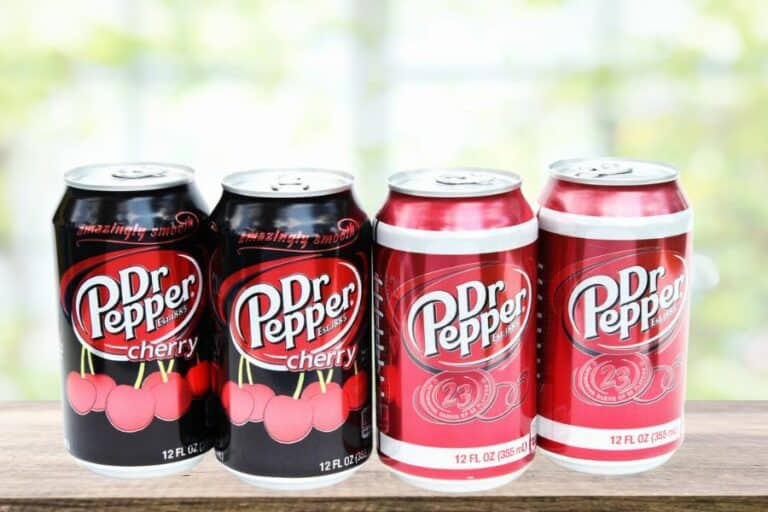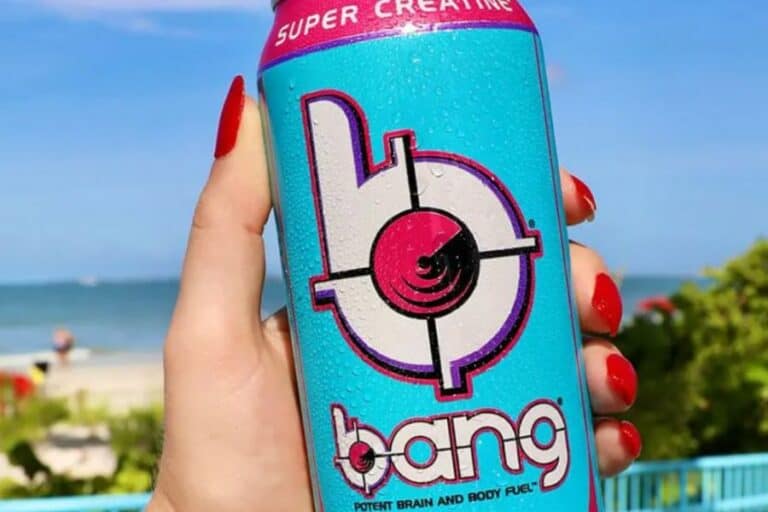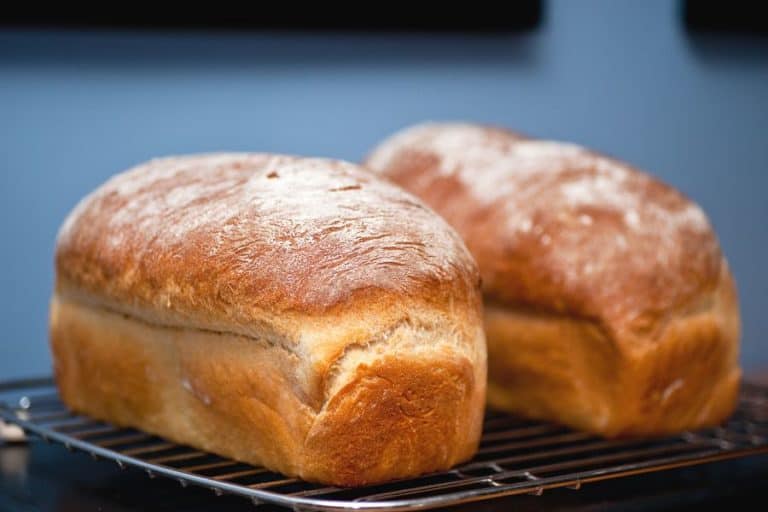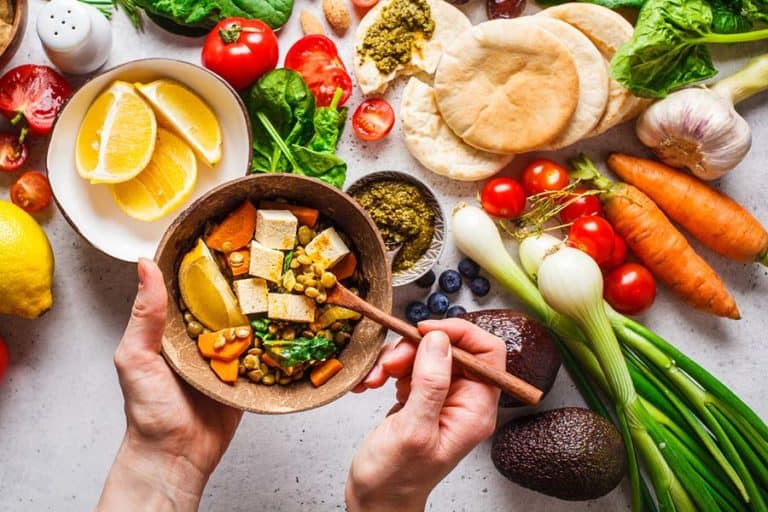How many calories should I eat a day?

The recommended calorie intake depends on various factors like body size, height, age, lifestyle, sex, and general health condition. Read on to know how many calories you require based on your body type.
How often do you wonder, “how many calories should I eat a day?” Do you want to know how many calories you should actually eat a day?
Let’s find the right number of calories you require daily.
What are calories?
Most people often confuse calories with fat. But, a calorie is a measure of the energy released by our food. In simple terms, a calorie is a unit of energy. And, every single cell in your body needs energy to function.
Every calorie you consume may or may not contain fats. Some calories can be empty calories, while some others can be calorie-dense. For example, a bottle of soda contains many empty calories, while the same quantity of milk contains fewer calories but more essential nutrients.
Factors that impact daily calorie intake requirements
Daily calorie intake requirements can vary from person to person. It is based on several factors such as:
- Age
- Sex
- Height
- Weight
- Activity level
- Hormones
- Medications
- Health conditions
Apart from these, factors like basal metabolic rate (BMR), Total Energy Expenditure (TEE), and calorie density of the food you eat also play a role in deciding the number of calories you should eat in a day.
Basal metabolic rate is the amount of energy (calories) your body uses to perform daily functions like circulation, respiration, brain function, and muscular function. Calories are the fuel that support the basic functions of our body.
TEE is the total amount of energy your body uses in a day. It includes three elements – BMR, the energy used during physical activity(from twiddling fingers to lifting weights), and the thermic effect of food (TEF). The thermic effect of food is the number of calories your body burns while digesting and metabolizing.
How many calories should I eat a day?
Determining the number of calories, you should take per day can be a little complicated. As we have noted above, several factors play a role in determining the number of calories you need. The calorie calculator below will help you determine the ideal number of calories you should eat each day. Enter your information into the calculator, and it will do the rest!
Read on to find out the recommended [1]USDA Rural Development: Dietary Guidelines number of calories to be consumed by different population subgroups according to age and sex.
Calorie intake for females
The calorie intake for a woman predominantly depends on factors like size, height, weight, age, and activity levels.
Women aged between 19 and 30 require a calorie intake ranging between 2000 to 2400 calories to maintain weight.
Women between 31 and 59 require a calorie intake ranging between 1800 to 2200 calories to maintain body weight. These women relatively have lower energy needs compared to younger ages.
Women aged 60 and above require even lesser calories ranging between 1600 to 2000 calories, to maintain weight. The majority of these women are not physically active.
| Age | Daily calorie requirements |
| 19 to 30 years | 2,000 to a max of 2400 calories |
| 31 to 59 years | 1,800 to a max of 2,200 calories |
| 60 and above | 1,600 to a max of 2,000 calories |
An important thing to keep in mind is that the number of calories recommended here might fluctuate a little depending on factors like your health condition, height, body weight, and your activity levels.
NOTE: The above estimates are not applicable to breastfeeding and pregnant women because these women have higher calorie needs.
Calorie intake for males
Just like women, the calorie intake for men too depends on various factors. So what is the ideal number of calories a man should eat a day?
Men aged between 19 and 30 require a calorie intake ranging between 2400 to 3000 calories to maintain body weight.
Men between 31 and 59 require a calorie intake ranging between 2200 to 3000 calories to maintain body weight. Energy requirements decrease with increasing age.
Men aged 60 and above require even lesser calories ranging between 2000-2600 calories.
| Age | Daily calorie requirements |
| 19 to 30 years | 2,400 to a max of 3000 calories |
| 31 to 59 years | 2200 to a max of 3000 calories |
| 60 and above | 2000 to a max of 2,600 calories |
Men, who are physically active or have certain physical conditions, might require higher or lower calorie intake. This might also vary depending on weight and height.
Calorie intake for kids
Children from different age groups have different calorie needs based on factors like sex, body weight, and height. A 4-year-old boy might require only 1200 calories, while a teenage girl can require twice the number. Likewise, weight and height requirements will be different for different age groups like 13 year, 14 year, 15 year, 16 year and more.
| Age | Daily calorie requirements |
| 2 to 4 years | Boys – 1,000 to max 1,600 calories Girls – 1,000 to max 1,400 calories |
| 5 to 8 years | Boys – 1,200 to max 2,000 calories Girls – 1,200 to max 1,800 calories |
| 9 to 13 years | Boys – 1,600 to max 2,600 calories Girls – 1,400 to max 2,200 calories |
| 14 to 18 years | Boys – 2,000 to max 3,200 calories Girls – 1,800 to max 2,400 calories |
Remember that it is not necessary to be very stringent on the daily calorie intake of growing children and teens to help them lose weight. Micromanaging a child’s intake of calories might lead to malnutrition and slower growth. The child might develop a dislike towards food, leading to eating disorders and allergies.
It is good to establish healthy eating habits among children by encouraging nutritionally dense foods and promoting regular physical activity.
How many calories should you eat for weight loss?
If losing weight is your goal, you will obviously need to create a calorie deficit by consuming fewer calories than you burn. Research [2]National Library of Medicine: Calories supports the idea that consuming low calorie diet is a very effective way to lose weight.
Knowing the exact number of calories to be consumed for healthy and sustainable weight loss can be a little tricky because it depends on different factors like your body size, sex, age, and your physical activity level.
The calorie calculator we have provided above can help you analyze your ideal calorie intake and give you an idea of your required calorie deficit. Just fill in your details in the required fields and let the calculator do its job.
How many calories should you eat for weight gain?
Eating more calories (creating a calorie surplus) than your body needs, is the best way to gain weight. If your aim is to gain weight slowly, consume at least up to 400 calories more than what your body burns per day. If gaining weight faster is your aim, consume calories ranging from 700 to 1000 extra.
Again, you can use the calorie calculator for this. The calculator will give you an estimate of the recommended number of daily calories you should consume to gain weight.
How many calories should I eat to maintain weight?
If weight maintenance is your goal, you will have to ensure that the number of calories you consume is equal to the number of calories your body burns. This can be a little difficult to achieve because our calorie needs change with different activities and body changes.
The calorie intake calculator above can give you an idea about the number of calories you should consume. In order to sustain your weight levels, we recommend tracking your daily calorie intake and calorie expenditure on a regular basis. Once you get the hang of it, it will be easier for you to make the necessary changes in order to maintain your weight.
How many calories should I eat to stay healthy?
Consuming the right number of calories is important. But eating the right kind of nutrient-dense food is equally vital for building strong health. Quality food and proper digestion go hand in hand with nutritional intake. If you want to lose weight, a blend of proper diet and exercise plays a prominent role.
Nutrient-dense food means food that gives you more nutrients per calorie you consume. For example, if you take in 100 calories of soda or 100 calories of freshly cooked greens, you end up taking 100 calories either way. While soda offers 100 calories from sugar, the freshly cooked greens offer you healthy nutrients like Vitamin A, Calcium, Proteins, and amino acids, making it a nutrient-dense food.
Digestion time has a huge role to play in how your calories show up on your weighing scales. Carbohydrates are the first to get digested and absorbed by your body, then come fats and proteins, and high fiber follows last. Choosing foods that digest slowly (High fiber foods) will keep you away from frequent food cravings. These foods also keep up your energy levels.
Nutrition dense and healthy calorie foods
Nutrition dense foods provide good calories, energy, and vital nutrients. Below are some nutritious and healthy foods for you to check out.
Oats and Granola
Oats are rich in proteins, carbohydrates, fiber, lipids, phytochemicals, and phenolic compounds. Eating oats regularly can keep you away from the risk of diabetes, heart disease, and celiac disease. It promotes belly fat and also helps you to lose weight.
Granola, a mixture of nuts, cereals, and dry fruits, is rich in proteins, fiber, and micronutrients. This makes it a calorie-dense food.
Eggs
Eggs are a rich source of good calories. They offer healthy fats, proteins, and Vitamin D. They are believed to have a little of every beneficial micronutrient.
In addition, they promote healthy weight gain and are good for muscle building. For complete nutrition, it is good to eat the whole egg.
Salmon and Oily Fish
Salmon and oily fish are rich in omega-3 fatty acids, healthy fats, and good proteins. They help in healthy weight gain and reduce the risk of heart diseases and blood clots.
Milk
Milk offers a wide range of health benefits as it is a source of vitamins, proteins, calcium, carbs, and good fats. Milk is the best food for children when it comes to energy intake.
Dried Fruits
Dry fruits are high in antioxidants and are packed with minerals, vitamins, and fiber. Eating dry fruits as a part of your everyday diet promotes healthy weight gain and reduces the risk of cardiovascular diseases.
Nuts
Nuts are another calorie-dense food that offers a good number of calories and promotes healthy weight gain. Moreover, they are packed with vitamins, minerals, proteins, healthy fats, and fiber. Tree nuts offer healthy fatty acids and bioactive compounds.
Dark Chocolate
Dark chocolate has a higher nutritional density than milk chocolate. It is also less in sugar percentage. Moreover, dark chocolate has antioxidants, magnesium, fiber, and micronutrients. It also helps reduce the risk of type 2 diabetes and cardiovascular diseases and is a stress suppressor.
Here are a few tables with lists of common foods and drinks along with their calorie content and their macronutrient composition.
Let’s begin with the caloric composition of some of the most common vegetables:
| Vegetables (in 100 gms) | Calories | Carbs | Proteins | Fats |
| Carrots | 41 | 6 | 0.9 | 0 |
| Broccoli | 28 | 2 | 5 | 0 |
| Tomato | 18 | 3 | 0 | 0 |
| Spinach | 23 | 3 | 2 | 0 |
| Lettuce | 15 | 2 | 1 | 0 |
| Potato | 77 | 17 | 2 | 0 |
| Zucchini | 17 | 3 | 1 | 0 |
| Eggplant | 25 | 5 | 0 | 0 |
| Avocado | 169 | 8 | 2 | 14 |
| Peas | 77 | 13 | 5 | 0 |
For non-vegetarians, meat, seafood and poultry often form a large part of their protein intake. Here is the calorie and macronutrient composition of some common non-vegetarian foods:
| Meats/poultry/seafood (in 100 gms) | Calories | Carbs | Proteins | Fats |
| Chicken | 215 | 0 | 18 | 15 |
| Fish(salmon) | 129 | 0 | 19 | 4 |
| Shrimp | 85 | 0 | 20 | 0 |
| Pork | 242 | 0 | 27 | 14 |
| Beef | 250 | 0 | 26 | 15 |
| Lamb/Mutton | 294 | 0 | 25 | 21 |
| Eggs | 155 | 1 | 13 | 11 |
| Turkey | 189 | 0 | 29 | 7 |
Dairy is an important source of calcium and other nutrients. It is also a significant source of calories for many people. Here is the calorie and macronutrient composition of some common dairy products:
| Dairy | Calories | Carbs | Proteins | Fats |
| Milk(1 cup) | 109 | 13 | 9 | 2 |
| Yogurt(1 cup) | 149 | 11 | 9 | 8 |
| Cheese(cheddar)(100 gms) | 404 | 3 | 22 | 33 |
| Cottage cheese (100 gms) | 98 | 3 | 11 | 4 |
| Whipped cream (100 gms) | 196 | 4 | 3 | 19 |
Here is a list of common fruits and their calorie and macronutrient composition:
| Fruits (in 100 gms) | Calories | Carbs | Proteins | Fats |
| Oranges | 46 | 11 | 0 | 0 |
| Apples | 52 | 13 | 0 | 0 |
| Bananas | 89 | 23 | 1 | 0 |
| Grapes | 67 | 17 | 0 | 0 |
| Strawberries | 32 | 7 | 0 | 0 |
| Watermelon | 30 | 7 | 0 | 0 |
| Pineapple | 50 | 13 | 0 | 0 |
| Mixed berries | 67 | 16 | 0 | 0 |
Dry fruits are an example of nutrient-dense calories. Here’s the calorie and macronutrient composition of some common dry fruits:
| Dry Fruits (in 100 gms) | Calories | Carbs | Proteins | Fats |
| Almonds | 579 | 21 | 21 | 49 |
| Pistachios | 560 | 27 | 20 | 45 |
| Raisins | 299 | 79 | 3 | 0 |
| Figs | 249 | 63 | 3 | 0 |
| Dates | 277 | 74 | 1 | 0 |
| Pine nuts | 673 | 13 | 13 | 68 |
| Apricots | 241 | 62 | 3 | 0 |
If you have been wondering about the caloriс and macronutrient composition of some common cooked foods, here is some valuable information:
| Cooked common foods (in 100 gms) | Calories | Carbs | Proteins | Fats |
| Rice | 130 | 28 | 2 | 0 |
| Brown rice | 112 | 23 | 2 | 0 |
| Sweet corn | 96 | 20 | 3 | 1 |
| Pasta | 131 | 24 | 5 | 1 |
| Bread | 266 | 49 | 8 | 3 |
| 1 Subway BLT Sandwich | 205 | 26 | 10 | 6 |
| Pizza | 298 | 30 | 11 | 14 |
| Quinoa | 120 | 21 | 4 | 1 |
| Rolled oats | 379 | 67 | 13 | 6 |
Here’s a split up of the calorie and macronutrient content of some popular desserts
| Sweets and desserts (in 100 gms) | Calories | Carbs | Proteins | Fats |
| Dark chocolate | 598 | 45 | 7 | 42 |
| Chocolate cake | 324 | 61 | 2 | 9 |
| Marshmallows | 318 | 81 | 1 | 0 |
| Chocolate ice cream | 216 | 28 | 3 | 11 |
| Honey | 304 | 82 | 0 | 0 |
Do you often wonder how many calories your favourite drinks pack in? Here’s a lowdown on the calorie content of some popular beverages:
| Beverages | Calories | Carbs | Proteins | Fats |
| Tea (237 gms) | 3 | 0 | 0 | 0 |
| Black tea (237 gms) | 2 | 0 | 0 | 0 |
| Coffee (237 gms) | 71 | 12 | 1 | 1 |
| Cola (258 gms) | 97 | 25 | 0 | 0 |
| Milk (244 gms) | 109 | 13 | 9 | 2 |
| Fresh orange juice (100 gms) | 45 | 10 | 0 | 0 |
| Alcoholic beverages: Beer (237 gms) Wine (236 gms) | 104 192 | 9 6 | 0 0 | 0 0 |
Take away
The total calories you need per day entirely depends on your lifestyle, physical health, and your weight goals. Keeping a check on calorie intake (food and drinks)is central to weight management. However, it is more important to have a balanced healthy diet that comprises nutrient-dense foods that can promote overall good health than having processed foods that can degrade your health.
Resorting to simple lifestyle changes like drinking adequate amounts of water, regular exercising, and having a balanced diet will help you in weight management and promote good health.
References
| ↑1 | USDA Rural Development: Dietary Guidelines |
|---|---|
| ↑2 | National Library of Medicine: Calories |







